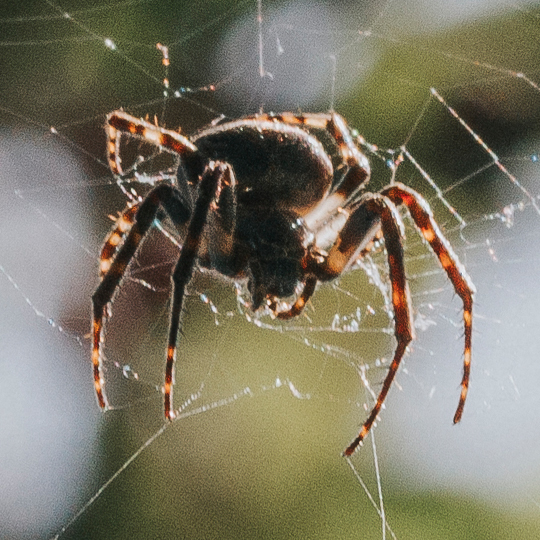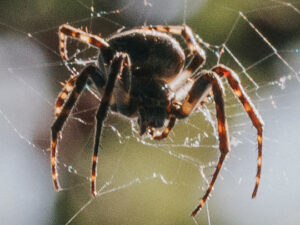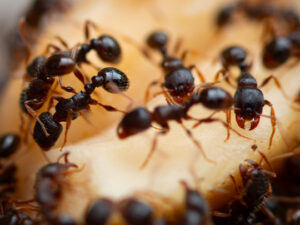
Summer brings sunshine, barbecues, and outdoor adventures. Unfortunately, it also brings unwanted houseguests in the form of insects, rodents, and other pests. As temperatures rise and humidity increases, these creatures become more active and determined to find their way into your home.
Don’t let pests ruin your summer fun. This comprehensive guide will equip you with practical strategies to keep your home pest-free throughout the warmer months. From identifying common summer invaders to implementing effective prevention measures, you’ll discover everything needed to maintain a comfortable, pest-free living space.
Why Summer Pest Prevention Matters
Warmer weather creates ideal conditions for pest activity. Rising temperatures accelerate insect reproduction cycles, while increased humidity provides the moisture many pests need to thrive. Your home offers an attractive refuge from extreme heat, along with food sources and water.
Taking proactive steps now prevents infestations before they start. Once pests establish themselves in your home, removal becomes significantly more challenging and expensive. Prevention remains your most effective defense against summer pest problems.
Common Summer Pests to Watch For
Flying Insects
Flies multiply rapidly in warm weather, particularly around garbage, pet waste, and food scraps. House flies can carry over 100 disease-causing pathogens.
Mosquitoes thrive in standing water and become most active during dawn and dusk. Beyond their irritating bites, they can transmit serious diseases like West Nile virus and Zika.
Wasps and hornets build nests in eaves, attics, and wall cavities. Their aggressive nature makes them particularly dangerous around outdoor activities.
Crawling Invaders
Ants follow scent trails to food sources and can quickly establish colonies inside your home. Different species prefer different foods, from sweets to proteins.
Cockroaches seek warm, humid environments and can survive on minimal food sources. They contaminate surfaces and trigger allergies and asthma.
Spiders often enter homes chasing other insects. While most species are harmless, some can deliver painful or dangerous bites.
Outdoor Nuisances
Ticks become more active as temperatures rise, hiding in tall grass and wooded areas. They can transmit Lyme disease and Rocky Mountain spotted fever.
Fleas proliferate in warm, humid conditions and often hitchhike indoors on pets or clothing.
Indoor Prevention Strategies
Seal Entry Points
Examine your home’s exterior for cracks, gaps, and openings that pests might exploit. Pay special attention to:
- Foundation cracks
- Gaps around windows and doors
- Utility line entry points
- Roof line openings
- Damaged screens
Use caulk for small cracks and expanding foam for larger gaps. Install door sweeps and repair damaged weather stripping. Replace torn window screens immediately.
Maintain Cleanliness
Consistent cleaning eliminates food sources and removes pest attractants:
Kitchen maintenance involves wiping down counters daily, storing food in sealed containers, and cleaning up spills immediately. Don’t leave dirty dishes in the sink overnight.
Garbage management requires using tight-fitting lids and taking out trash regularly. Clean garbage cans weekly to remove odors and residue.
Pet care includes storing pet food in sealed containers and cleaning food bowls after each meal. Vacuum pet hair and dander regularly.
Control Moisture
Many pests need water to survive. Reduce moisture by:
- Fixing leaky pipes and faucets
- Using exhaust fans in bathrooms and kitchens
- Ensuring proper ventilation in basements and crawl spaces
- Cleaning out gutters and downspouts
- Addressing any standing water issues
Organize Storage Areas
Cluttered spaces provide hiding spots for pests. Keep storage areas clean and organized:
- Store items in sealed plastic containers rather than cardboard boxes
- Keep storage areas dry and well-ventilated
- Regular vacuum and dust storage spaces
- Maintain clear pathways for easy inspection
Outdoor Prevention Tactics
Landscape Management
Your yard’s condition directly impacts pest pressure on your home:
Lawn care involves keeping grass trimmed short and removing fallen leaves promptly. Overgrown areas provide shelter for ticks, fleas, and other pests.
Plant selection matters when choosing landscaping. Avoid plants that attract specific pests near your home’s foundation. Trim bushes and tree branches away from your house.
Mulch management requires keeping mulch at least 18 inches away from your foundation. Mulch retains moisture and can harbor insects.
Water Source Elimination
Standing water attracts mosquitoes and other pests:
- Empty flower pots, bird baths, and kiddie pools regularly
- Clean gutters to prevent water accumulation
- Fix outdoor faucet leaks
- Ensure proper drainage around your property
- Cover or treat swimming pools and hot tubs appropriately
Outdoor Dining Areas
Summer entertaining requires extra precautions:
- Clean grills thoroughly after each use
- Store outdoor furniture cushions in sealed containers
- Use covered containers for pet food and bird seed
- Install outdoor fans to discourage flying insects
- Consider citronella candles or torches for natural repellent
Natural Prevention Methods
Essential Oil Repellents
Certain scents naturally deter pests:
Peppermint oil repels ants, spiders, and mice. Soak cotton balls in peppermint oil and place them in problem areas.
Lavender discourages moths, fleas, and mosquitoes. Plant lavender around outdoor seating areas or use dried lavender sachets indoors.
Eucalyptus deters mosquitoes and ticks. Mix eucalyptus oil with water in a spray bottle for a natural repellent.
Beneficial Insects
Encourage natural pest predators:
- Plant flowers that attract beneficial insects like ladybugs and lacewings
- Install bat houses to control mosquito populations
- Maintain spider populations in outdoor areas (they control other insects)
- Create habitat for pest-eating birds
Companion Planting
Strategic plant placement can reduce pest problems:
- Marigolds deter aphids and whiteflies
- Basil repels mosquitoes and flies
- Catnip is more effective than DEET against mosquitoes
- Garlic plants discourage various insects
When to Call Professionals
Some situations require expert intervention:
Signs of Serious Infestation
Contact pest control professionals if you notice:
- Multiple pest sightings daily
- Evidence of structural damage
- Nests or breeding sites
- Bites or stings from unknown sources
- Persistent problems despite prevention efforts
Dangerous Pest Species
Certain pests require professional pest control handling:
- Venomous spiders like black widows or brown recluses
- Aggressive wasp or hornet colonies
- Potential disease carriers like ticks or mosquitoes in large numbers
- Structural pests like termites or carpenter ants
Prevention Services
Professional pest control companies offer:
- Comprehensive property inspections
- Customized treatment plans
- Regular monitoring and maintenance
- Expert identification of problem species
- Safe application of control products
Protecting Your Summer Investment
Effective pest prevention requires consistent effort and attention to detail. By implementing these strategies before problems arise, you’ll save money, protect your family’s health, and maintain a comfortable living environment throughout the summer months.
Remember that prevention is an ongoing process, not a one-time event. Regular maintenance and vigilance will keep your home pest-free and your summer enjoyable. Start with the most critical areas—sealing entry points and eliminating food sources—then gradually implement additional strategies.
Your proactive approach to summer pest prevention will pay dividends in comfort, safety, and peace of mind. Take action now, and enjoy a pest-free summer season.













